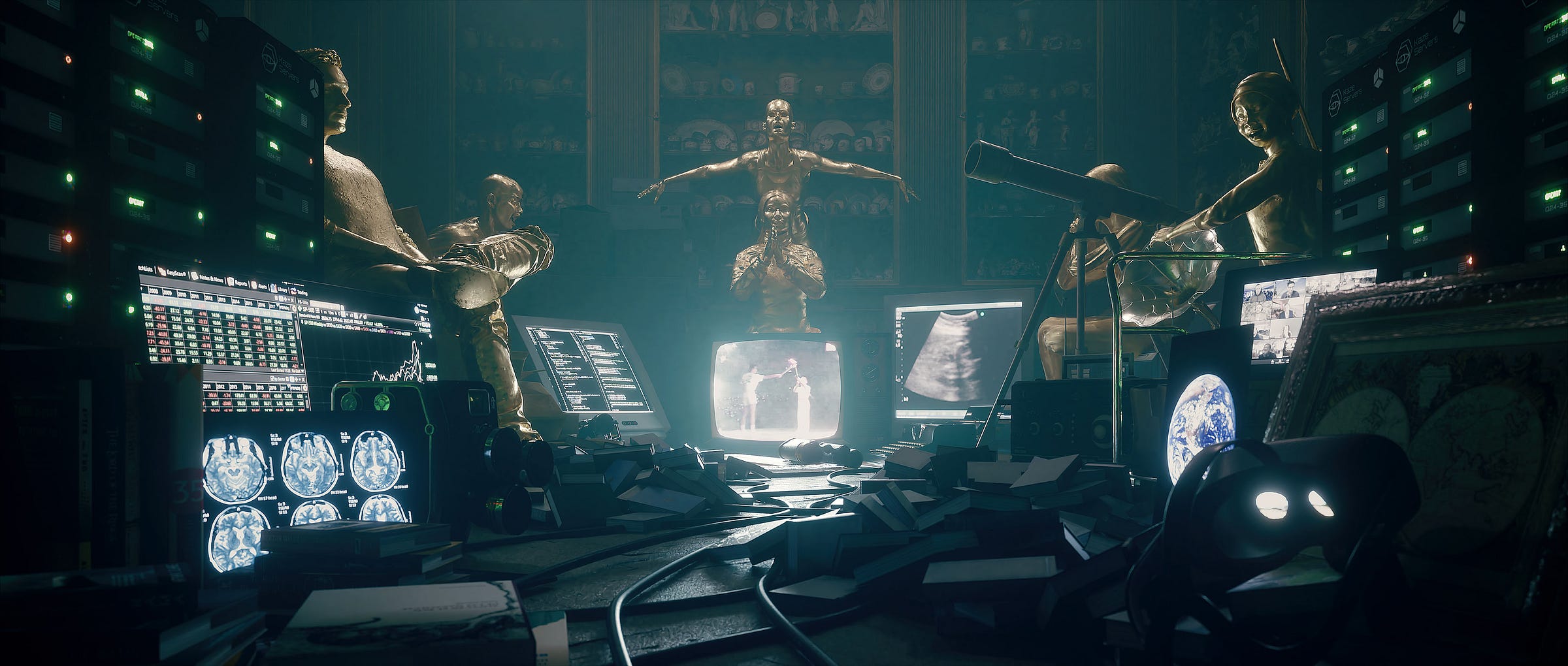What is Speculative Fiction?
And why you might be interested in it
When people ask me what I write, I say “speculative fiction”.
I first encountered the term via feminist and ecological scholar Donna Haraway; someone not known, necessarily, as a writer of fiction (although she has written some), yet who coined what I think is the most adept definition, describing ‘speculative fiction’ as “things that are not yet but could yet be.”
May I one day give the gift of such an appropriate phrase.
Things that are not yet but could yet be is (for me) such a perfect encapsulation of this genre as it gets to the heart of places and peoples, technologies, and tales that are not quite what you would find by going outside and just walking around, but not completely out of the question, either.
In 1985, Margaret Atwood, author of ‘The Handmaid’s Tale’ and ‘Onyx and Crake’ sparked semantic controversy when she dismissed science fiction as the pulpy stuff of ‘talking squids in outer space’ and grounded her work instead in the realm of “things that could actually happen”. There is in fact a manifesto on ‘Mundane Science Fiction’, authored by another Canadian writer, Geoff Ryman (with whose work I am not familiar. Are you? Tell me about it!) which calls for a genre of science-fiction writing without the tropes of fast-than-light-speed travel, aliens, telepathy, or multiverses. Such things are outside the boundaries of “things that could actually happen”. Or so it was thought.
Of course it's very easy to become rapidly embroiled in line-drawing warfare and forget that these labels are not handed down by some literature god but made-up mostly by publishers trying to sell things.
Sticking a genre label on your work might be useful in quickly connecting with other writers with similar interests, or finding places to publish.
I’ve personally found the category of speculative fiction useful as a tool for thinking through a question that often eats at my mind and which I’ve only just started to peer at, occasionally.
This is the question:
What is the point of writing make-believe-stories?
Thank you for asking.
About ten years ago, I considered trying to become a journalist. I liked the craft of working with words. But I was dogged by the idea that my words should do something. That they should be useful. I looked into applying for journalism school, and discovered - discouragingly - that the applications process consisted of detailing all the efforts that I - the prospective journalist - had taken to get myself published/televised/interviewed/radioed/ or otherwise noticed.
I had done none of these things. I don’t particularly want to be on television. I don’t like looking at my own face. I therefore became scared of the journalism-school application and instead found a job writing risk reports for a cyber security company (where no-one was the least bit interested in looking at my face)
I write speculative fiction because I am excited by its agency. Speculative fiction is active. It speculates. How would we live in a world without gender binaries? That’s Ursula Le Guin’s ‘Left Hand of Darkness’'. What does it really mean to confront xenophobia? That’s Octavia Butler’s ‘Lillith’s Brood’.
Speculative fiction acknowledges the constructed nature of present-day reality by considering other options.
It is like a lighthouse on an unknown shore. Maybe the shore is the future. Or an alternative social order. The lighthouse shows us - firstly - that the shore is even there. In some cases, it warns of rocks that we might otherwise wreck ourselves upon, and in other cases, it illuminates an inviting inlet that we could navigate towards.
Out in the world right now, I frequently encounter lighthouses illuminating the rocky dangers of speculative futures marked by inequality, ecological collapse, and techno-fascist overlords.
Depicting such worlds is important work. Very few people, surely, want techno-fascist overlords.
But wouldn’t it be sad if we were all so busy avoiding the rocks that we forget to look for calmer water?
My favorite speculative fictions are more the lighthouse-illuminating-an-inviting-inlet variety. That is what I am most excited to write. Yes, sometimes the inlet contains tricky seaweeds. And there may be an octopus. But she’s probably not malicious; just confused about what you’re doing in her ocean.
I am currently working on a list of my favorite non-dystopian speculative fictions. I’ll balance it out with a list of dystopian ones as well…because, as I said, being dystopian about the future is important work.
And I hope -in this first week of writing on Substack and meeting fellow readers and writers (hiiiii) - that you will have some recommendations and very strong opinions that will guide these lists as they evolve.




I'm sure you must know the work of Ursula K. Le Guin, and I had to think of her when I read this. And I want to shout out N.K. Jemisin, iconic builder of future imaginaries. Curious to read more of your work
Publishers try very hard to bridge between both fantasy and SF for their 'speculative fiction' streams, but most writers sit firmly on one bank or the other. How do you best see it, Bethany?